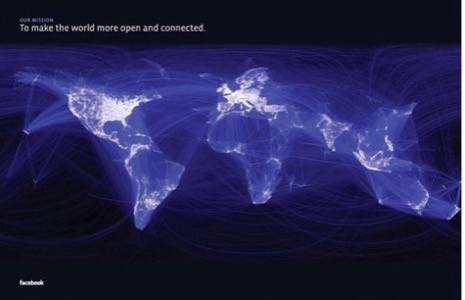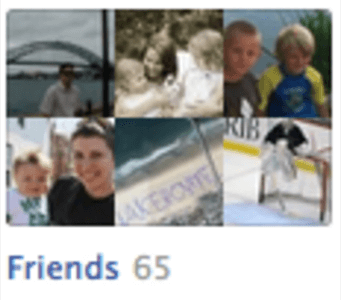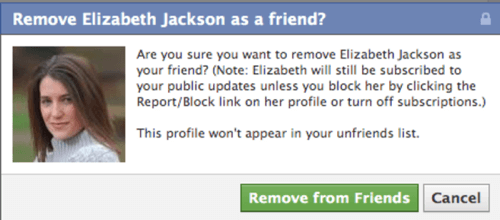

It’s not you.
It’s not me.
It’s Facebook.
During the past 24 hours – partly on the advice of a therapist but mainly over concerns about Facebook’s increasingly Draconian service terms – I broke up with 90% of my friends on the world’s biggest social network. This is the story of the how and the why of my social media colonic.
Why Now?
I have one real-world friend who is not on Facebook. Never has been, never will be. He’s tech savvy and smart and a helluva a lot happier than those of us who check Facebook several times a day. There’s now empirical evidence that Paul’s happy-go-lucky nature may not be a coincidence, as a study out this week suggests too much time on Facebook leads to depression.

But the problem is bigger than just personal happiness. In the past week, I’ve written two posts about evil tidbits tucked into Facebook’s new user policy: one dealing with the fact that you automatically accepted these terms when you logged in after last Friday, and one looking at Facebook’s attempts to ban the use of certain words. Both posts drew comments offering a simple solution: Quit.
Even before all this, I’ve often fantasized about cutting the ties. I’ve never really liked the idea of essentially letting Facebook make money off of content I create, be it my photos or my pithy status updates, and it is a time suck. As it is, I’ve disabled Facebook apps on my mobile devices and have a blocking program on my laptop browser that limits the times when I can check Facebook. But, given that I write about social media for a living, a complete severing of ties is just not feasible.
Who Made the Cut?

I liked Path’s policy of borrowing a concept I first read about in Malcolm Gladwell’s Tipping Point called the rule of 150. Path limits users to 150 connections under the assumption that our brains are only capable of handling 150 close relationships.
I knew at the very least I had to cut my number of Facebook friends to under 150. But I also realized some of my 150 close connections are with people I don’t socialize with: bosses, clients, students and colleagues. If they are just “friends,” they can still find me on LinkedIn and Twitter, but I wanted to pare Facebook down to the people I consider important in my life right now.
If Facebook is truly a social network, if all these people are truly friends instead of “friends,” the actual number, I decided, was probably significantly less than 150. I’m a journalist so, by definition, I’m bad at math. I decided to keep things simple and cut my list of 650 friends by 90%.
At first it was easy. If I deliberately avoided you at the last high school reunion I went to, or if I wasn’t quite sure who you were because you’ve changed your hair, name or both, or if you have ever sent me a Farmville request, we’re now through.
Then it got a little harder. I decided if I haven’t had meaningful contact with you (which generally meant in-person contact) in the past couple of years, I probably clicked unfriend when your name came up on my list. I don’t drink anymore, so people who had status updates that almost exclusively focused on drinking – particularly if they were older than 40 – were cut. If you’ve ever made passive-aggressive comments about your children or used the phrase “FML” in a status update about a mundane part of your daily routine, it was time for us to say good bye.
Once I got under 200 friends, things got even harder. I broke the “meaningful contact” rule for a few college friends that I’m not in touch with anymore. They’re like faded, old They Might Be Giants concert tee shirts: too ratty to wear but too precious to throw out. They’re people that I feel if I bumped into we’d grab lunch and pick up as if the intervening decade had been no longer than a week or two.
The process was tedious, and I had to do it in 10-minute bursts over the course of a day. Finally, I reached my goal of 65 Facebook friends, no thanks to Facebook.
Facebook Fights Back
Why did the process take 24 hours? Because Facebook doesn’t take social network breakups easily and makes the process of paring a friend list of 650 down to 65 a tedious, one-by-one process.
That is, one-by-one if you’re lucky.
Because I swear people I had unfriended would pop back up in my list a few moments later. I tried to pass time by removing people on my iPhone while watching television, only to find out the next time I checked Facebook from my laptop all of the people I thought I had removed were still on my friends list.
But here’s the real kicker: Even though I removed all those friends, they still get to see my status updates, thanks to the Subscribe feature Facebook rolled out last year.

For the record, Elizabeth and I remain friends on Facebook and in real life. But had she been among the 585 people I unfriended, the only way I could stop her from seeing my feed (and presumably sharing content I post) is to block her. Not only would that add another step to the already lengthy process, but my own feeling is that those social media restraining orders are excessively harsh and something best reserved for ex-girlfriends.
Still, isn’t the point of unfriending someone to create a bit of distance between their world and yours? Does this whole exercise make any sense?
For Facebook it does. Facebook needs those people to keep seeing my content because it not only has the potential to keep them on the site longer, it helps them determine their likes and dislikes. I may have reduced the amount of user-generated content I’m exposed to on Facebook by 90%, but as long as I continue to share content on Facebook, I’ll still be giving those 585 former friends potential reasons to spend even more time on the site.
It Was Worth It
As a result, if I share this post on Facebook, all those former friends will know that I dumped them. They’ll know that I’m kind of a jerk. But here’s a secret:
I don’t care.
Because as I look at my news feed this morning, I’m finding updates from people I like, miss and am actually interested in. They’re not lost in the clutter of a hundred different status updates by half-forgotten strangers from high school or ex-bosses that I never socialized with in any real sense of the word.
In other words, my social network is finally social. Facebook is once again relevant and usable in my life.

















